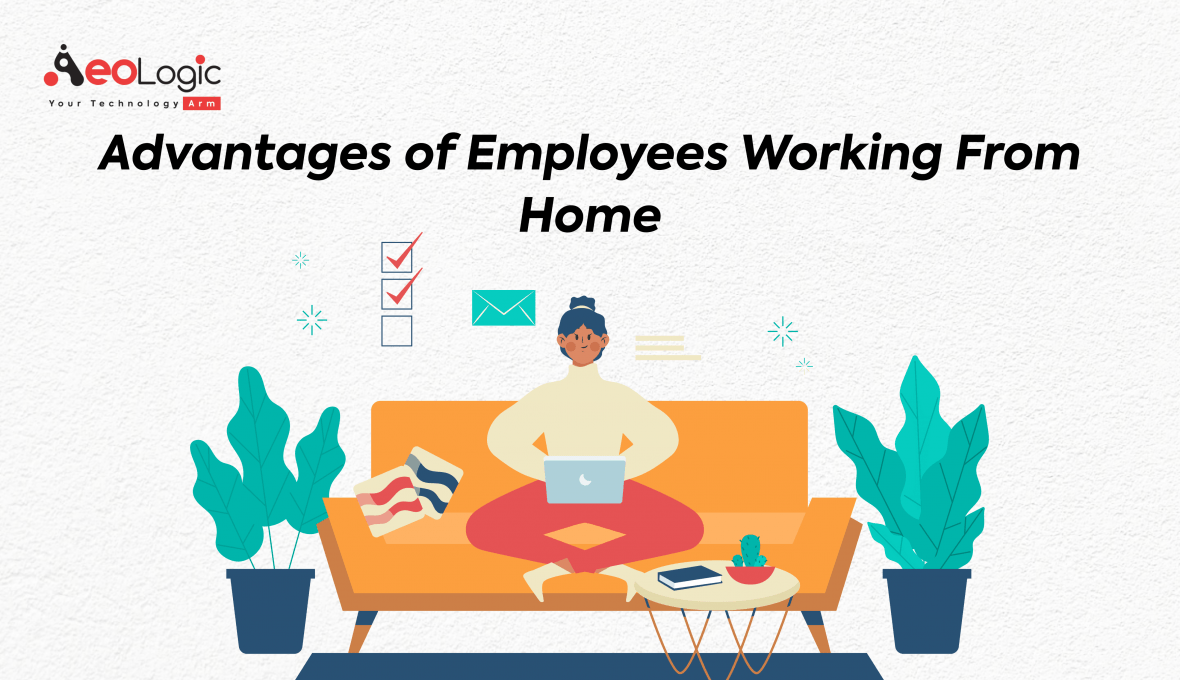Introduction
When COVID- 19 pushed organizations each over the world to allow their workers to work from home, remote work had a huge moment. Yes, the rush to provide workers the access to all the tools they would require to work from home was a bit, well, sudden for numerous employers. But after everyone settled in, what quickly came apparent to numerous office-based team is that workers could be productive and concentrated when not in the office. By numerous cases, indeed more so. Employers far and wide began to understand that remote work really works. In this article, we will explain the advantages of employees working from home.
Also read: Smart Ways to Improve your Work-Life Balance
Advantages of Working From Home
There are so many advantages of employees working from home. We are listing out the best of the bestest advantages of working from home. Some you may formerly be apprehensive of, and some that may open your eyes indeed more to remote work’s impact on employers, workers, the economy, and the planet earth.
Better Work- Life Balance
A number of remote jobs also come with flexible schedules, which means that workers can start and end their day as they choose, as long as their work is complete and leads to strong issues. This control over your work schedule can be inestimable when it comes to attending to the requirements of your particular life. Whether it’s running some errands, dropping children off at academy, attending an online fitness class in the morning, or being home for a contractor, these tasks (and further!) are much easier for balancing when you are working from home.
Decreased Commute Stress
The average one- way commuting time in the U.S. is 27.1 minutes. That is roughly an hour each day wasted going to and from work, and it is really adding up. As per the Auto Insurance Center, people who are working from office are spending about 100 hours travelling and 41 hours stuck in business each time. Some people who tend to work from office have to encounter much longer commute times of 90 minutes or further each way. But spending time travelling is just one of the disadvantages of going to and from work. Even more than 30 minutes of daily one- way travel is linked to extreme case of stress and anxiety, and research mentions that commuting 10 long miles to work each day is associated with health issues like:
- High cholesterol levels
- High blood sugar
- Increased probability of depression
Ditching the commute helps you support your internal and physical health. The time savings can allow you to concentrate on things outside of work, like getting extra sleep in the morning, spending further time with family, getting in a exercise, or eating a healthy breakfast.
Location Independence
One of the considerable benefits of telecommuting is having access to a broader range of job openings. Hence, it will not be limiting geographic position. This can be especially helpful for job seekers living in remote areas and small towns where there may not be numerous available original positions. Having no set job position means that, pre-pandemic, completely remote workers could also travel and live as digital nomads while having a meaningful career. Though a full wanderer life is presently on hold, as borders begin to open up, it’s still a definite perquisite.
People who have to move constantly, similar as military consorts, can also profit from having a remote job that can be done from anywhere, without having to start over at the bottom of a new company with each move. In addition, remote work is a great way to avoid high- rent and high- mortgage areas, especially for positions ( like tech) that used to bear living in a city with a high cost of living. With remote work, you no longer have to live near a major metropolitan area to have a career you love.

Also read: How to Achieve Work-Life Balance Through Productivity
Better Inclusivity
Remote work enables companies to embrace diversity and addition by hiring people from different socioeconomic, geographic, and career backgrounds and with different perspectives which can be difficult to negotiate when recruiting is confined to a specific area that not everyone wants, or can go, to live near.
And by hiring workers who can work from home in the communities where they feel the most comfortable and supported. Companies choose to support diversity, community, and family. Telecommute jobs give people who may have a hard time chancing steady employment at an onsite job, like those with disabilities or caregivers who need a flexible schedule, the occasion to follow their career pretensions without having to worry about exchanging back and forth to an office. It also gives workers the flexibility to get to doctor and other healthcare appointments when required.
Money Savings
People who work from home partial time can save around$ 4,000 per time. Gas, auto conservation, transportation, parking, a professional wardrobe, lunches bought out, and more can all be reduced or excluded from your spending entirely. These savings add up and put further money back into your fund. And, moreover, the savings are not just for employees. As further and further companies allow workers to continue working even post-pandemic. Such as Twitter, Square, Shopify, and Facebook, to name just a many. They will also see significant long- term cost savings. According to Global Workplace Analytics, a typical company can save around$ 11,000 per time for every hand. Who works from home at least some of the time.
Also read: The Role of Technology in the Workplace
A New Way Forward
Though the Covid-19 pandemic may have been the accelerator for remote work for several millions of employees around the world. Despite of this, the advantages of employees working from home are impacting so many things on a international level. That it is sure to become the best path forward. Learn more about the advantages of employees working from home from our other published blogs.
Connect with us to know more.






